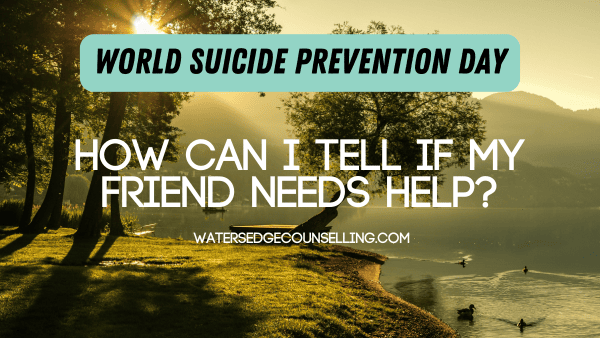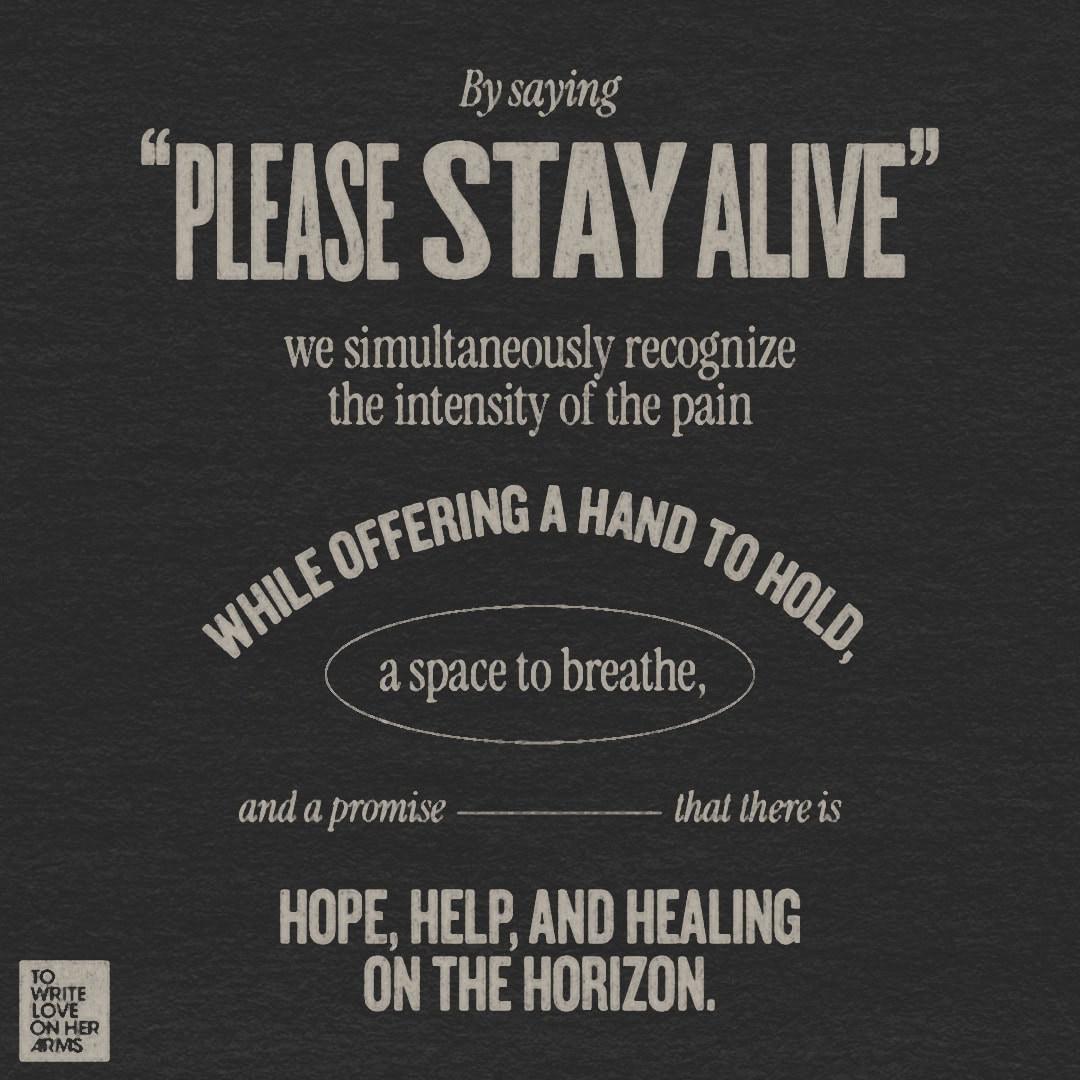
World Suicide Prevention Day is held on September 11 every year. Not only does it erase the stigma around mental health and our struggles, but it also helps us to remember those we have lost to this epidemic.
For many of us, World Suicide Prevention Day is a reminder that we can help and support our friends when they are going through tough times. Knowing what signs to look for, and how to help a friend who is in crisis or suicidal, can empower us to reach out when we are concerned.
What are the signs that a friend or loved one is struggling?
There is no one size fits all when it comes to mental ill health, so it starts by noticing that your friend is acting out of character. Here are some factors to keep an eye out for:
- Social isolation, missing appointments or taking a large amount of sick days with no explanation.
- Signs of injury or bruising on the body. Or, wearing long sleeves/being unreasonably covered up to hide their skin.
- Social media posts that are darker, out of character, that joke about harming themselves or others, or depict graphic content.
- Lack of appetite.
- Extreme lethargy and lack of sleep.
- Risk taking behaviour.
- Extreme compulsive or manic tendencies.
- Comments about not being here any more, leaving, or death.
If you are concerned that a friend is self harming or has thought about suicide (these are not always connected), you can help by gently approaching them. Ask how they are feeling with open ended questions, and if they don’t open up, tell them that you are concerned. Remember, there is no judgement here.
Just because someone is doing it tough or perhaps even has thoughts of suicide, doesn't mean they want to go. They just want some relief from their pain, and by inviting them to open up, you give them permission to be honest, and they can start a journey to healing.
If a friend does tell you they are going through a tough time, don't worry about having the answers! Just listen. Then invite them to take a next step.
Practical next steps for your friend:
- If your friend isn't in crisis but needs support, offer to go to the doctor or GP with them to talk about receiving a mental health plan.
- Connect your friend to a counsellor, or offer to travel with them to a therapy appointment.
- Give them a link to websites likes To Write Love on Her Arms, Headspace and Lifeline, where they can learn more about what they are experiencing and see they are not alone.
- Give them the phone number to a lifeline service, so they have someone to contact at anytime if they feel overwhelmed. In Australia, you can call 13 11 14 or text 0477 13 11 14. In America, it is 988.
- If you are concerned about the immediate safety of your friend, call 000/911 immediately. If you can be with them, do so. Otherwise, keep checking in. And if you're not sure if you're over reacting (you're not, you're just being a good friend), call a lifeline yourself and ask for advice.
This World Suicide Prevention Day, let's remember that none of us have to do life alone. In the highs and lows, we all deserve to have people by our side who remind us we are loved, valued and have purpose.
In the words of To Write Love On Her Arms, Please Stay Alive. Find more out about their Suicide Prevention Campaign here: pleasestayalive.com.
